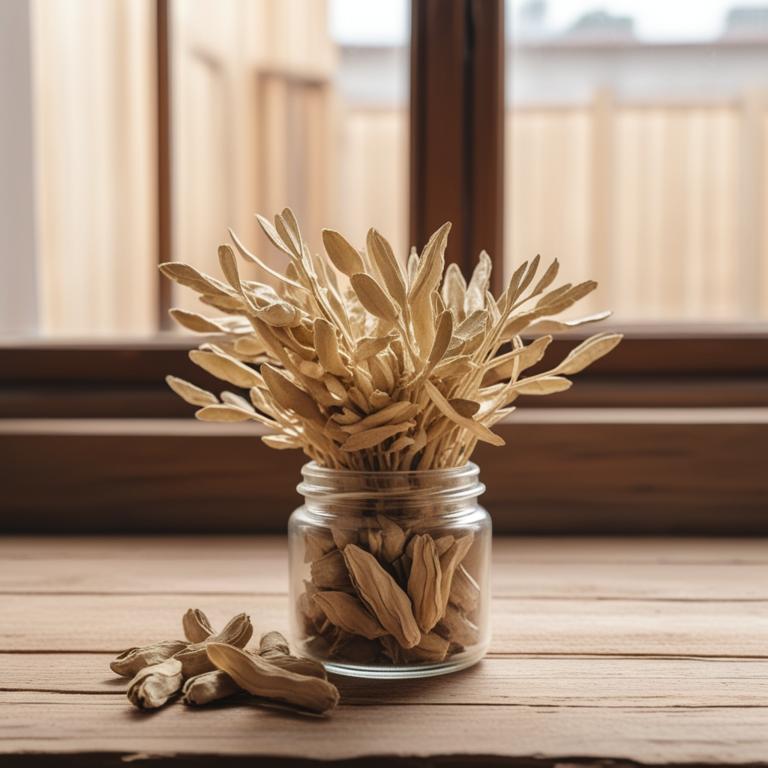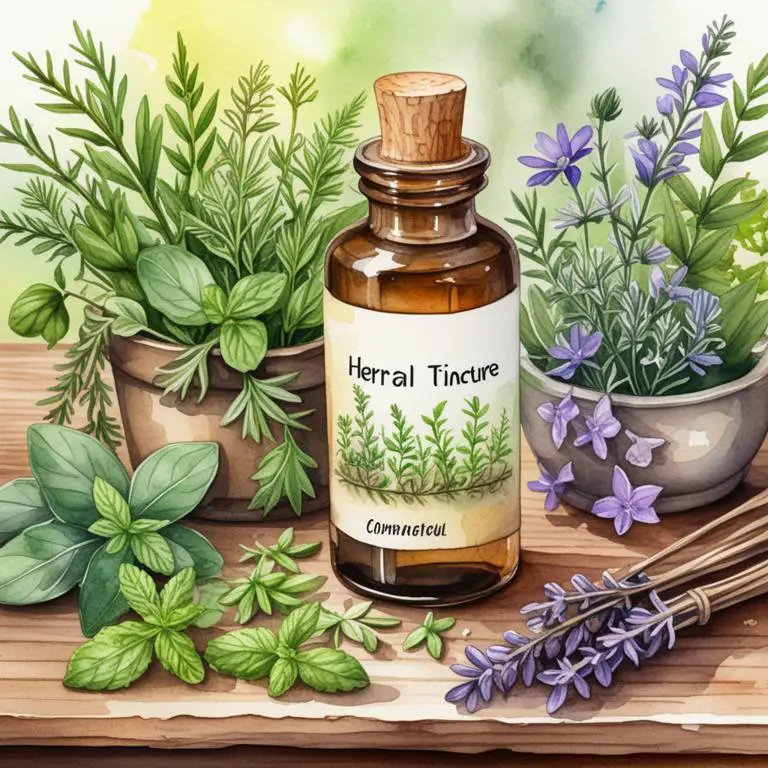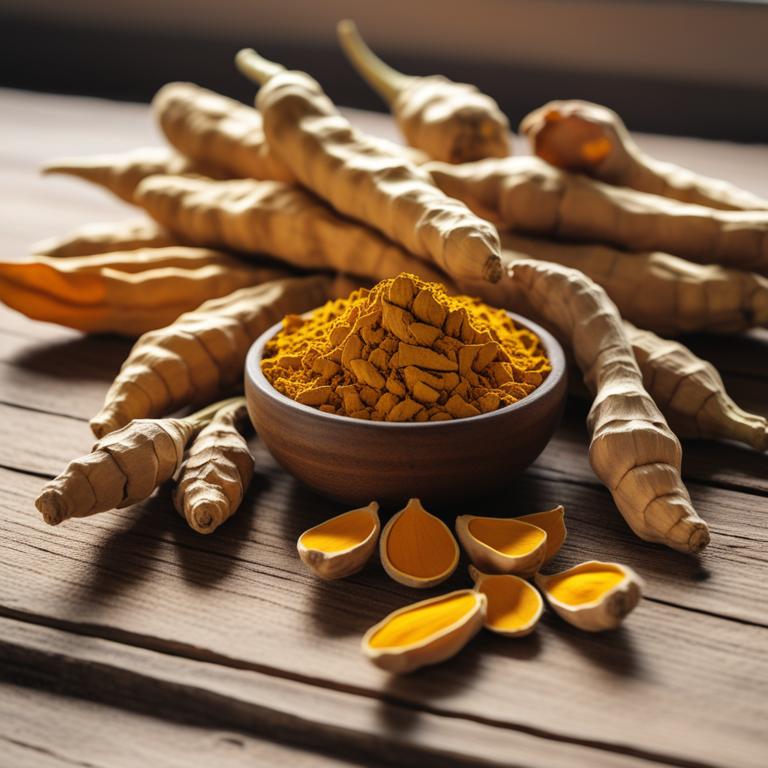Updated: Nov 30, 2024
8 Herbal Tinctures For Vomiting
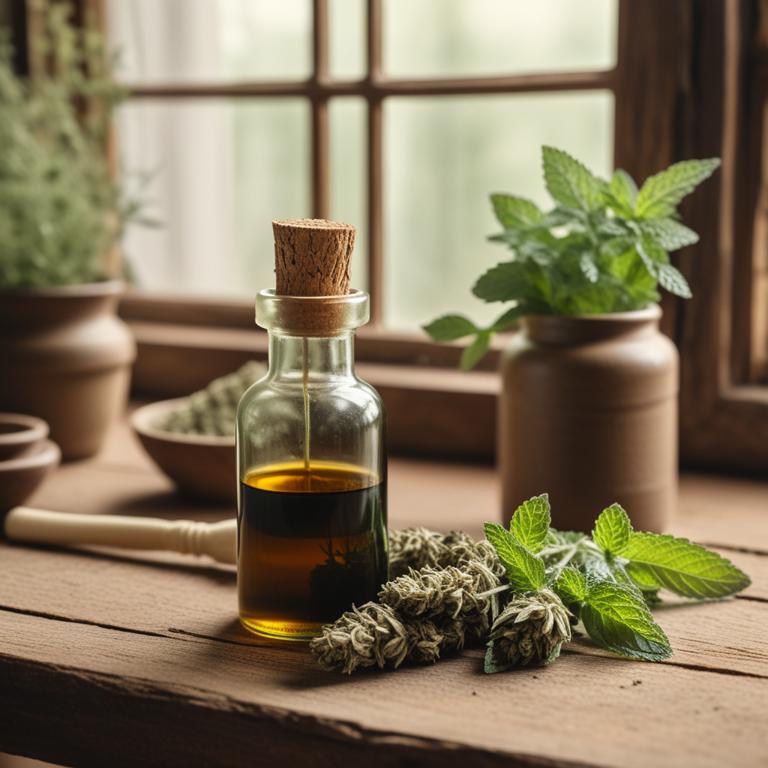
Herbal tinctures can be a helpful remedy for vomiting.
They work by soothing the digestive system and helping to calm the stomach. Many herbs have natural anti-inflammatory properties that can reduce nausea and discomfort. For example, Zingiber officinale, also known as ginger, has been used for centuries to ease digestive issues. It contains compounds that help to reduce inflammation and relax the muscles in the stomach, making it easier to keep food down. Glycyrrhiza glabra, or licorice root, has anti-inflammatory properties that can also help to soothe the stomach and reduce nausea.
Ginkgo biloba, while not typically thought of as a digestive herb, can also be beneficial in small amounts. It has anti-inflammatory properties that can help to reduce inflammation in the digestive tract, which can contribute to vomiting. Herbal tinctures can be made by infusing these herbs in a solvent like water or alcohol, and taking the liquid as needed. Using herbal tinctures for vomiting can be beneficial because they are often gentle on the system and don't have harsh side effects. They can also be customized to an individual's needs, as different herbs may work better for different people.
By using herbal tinctures, people can find a natural way to manage their symptoms and feel better without relying on medication.
This article explains in detail what are the best herbal teas for vomiting and wh.
Also, you may be interested in...
Today Free Bonus!
The Ultimate Herb Drying Checklist
(For Long-Lasting Powerful Medicinal Effect)
How to easily dry herbs that don't mold and that keep their strong medicinal power for more than 1 year.
Table of Contents
1. Zingiber officinale

Zingiber officinale tinctures contains bioactive constituents like gingerols and shogaols.
These compounds have anti-inflammatory and antispasmodic properties, which help to soothe the digestive system and reduce nausea. The gingerols also have a drying effect on the stomach, which can help to calm vomiting caused by excess stomach acid or food poisoning. The antispasmodic properties of shogaols help to relax the muscles in the stomach, reducing spasms and cramping that can contribute to vomiting.
By reducing inflammation and muscle spasms, Zingiber officinale tinctures can help to alleviate vomiting and promote a sense of calm in the stomach.
- Gather 1 cup of fresh Zingiber officinale (ginger) roots and 2 cups of 80% vodka.
- Chop the ginger roots into small pieces and place them in a clean glass jar.
- Pour the vodka over the ginger pieces, making sure they are completely covered.
- Seal the jar and let it sit in a cool, dark place for 2-3 weeks, shaking the jar daily.
- After 2-3 weeks, strain the liquid through a cheesecloth or a coffee filter into another glass jar, discarding the solids.
2. Glycyrrhiza glabra

Glycyrrhiza glabra tinctures contains glycyrrhizin, a triterpenoid saponin that has anti-inflammatory properties.
Glycyrrhizin helps to soothe and calm the stomach, reducing inflammation and irritation that can cause vomiting. Licorice root, the source of glycyrrhizin, also contains flavonoids and coumarins that have a protective effect on the digestive system. These compounds help to balance the pH levels in the stomach, preventing acid reflux and other conditions that can lead to vomiting.
By regulating the digestive system and reducing inflammation, Glycyrrhiza glabra tinctures can help to alleviate vomiting and promote a sense of calm and well-being.
- Gather 1 cup of dried Glycyrrhiza glabra root and 2 cups of 80% ethanol in a clean glass container.
- Combine the dried root and ethanol in the container. Make sure the root is fully covered by the ethanol.
- Seal the container and store it in a cool, dark place for 2-3 weeks, shaking the container every day.
- After 2-3 weeks, strain the mixture through a cheesecloth into another clean glass container. Discard the solids.
- Store the tincture in a clean glass bottle with a dropper lid. Use 10-20 drops as needed to help with vomiting.
3. Ginkgo biloba

Ginkgo biloba tinctures contains flavonoids and bilobalide as key bioactive constituents.
Flavonoids have antioxidant and anti-inflammatory properties, which help reduce irritation in the digestive tract and alleviate vomiting. Bilobalide, on the other hand, has a protective effect on the stomach lining, reducing inflammation and soothing stomach cramps. These properties make Ginkgo biloba tinctures effective in calming stomach issues and relieving vomiting.
The flavonoids and bilobalide in Ginkgo biloba tinctures work together to promote a healthy digestive system and reduce vomiting episodes.
- Gather 1 cup of Ginkgo biloba leaves and 2 cups of 80-proof vodka in a clean glass jar.
- Pack the Ginkgo biloba leaves tightly into the jar, making sure they are completely covered by the vodka.
- Seal the jar and store it in a cool, dark place for 2-3 weeks, shaking the jar every day.
- Strain the liquid through a cheesecloth or coffee filter into another clean glass jar, discarding the solids.
- Transfer the tincture to a small glass dropper bottle and store it in a cool, dark place. Use 5-10 drops as needed to help with vomiting.
4. Cinchona officinalis

Cinchona officinalis tinctures contains quinine, a key active constituent, which has antiemetic properties that help alleviate vomiting.
Quinine works by inhibiting the action of dopamine and acetylcholine in the brain, neurotransmitters that play a role in inducing vomiting. Cinchona officinalis tinctures also contain alkaloids like cinchonine and cinchonidine, which have a similar effect. The alkaloids in Cinchona officinalis tinctures have been shown to have a sedative effect on the stomach, reducing spasms and inflammation that can lead to vomiting.
By reducing stomach spasms and inflammation, Cinchona officinalis tinctures can help provide relief from vomiting.
- Gather 1 cup of fresh Cinchona officinalis leaves and flowers, or 2 tablespoons of dried leaves and flowers.
- Use a clean glass jar with a lid to make the tincture. Combine the Cinchona officinalis material with 2 cups of 80% ethanol or vodka.
- Steep the mixture in a cool, dark place for 2-3 weeks, shaking the jar every day. This will help the ethanol extract the active compounds.
- After 2-3 weeks, strain the mixture through a cheesecloth or a coffee filter into another clean glass jar. Discard the solids.
- Store the tincture in a dark glass bottle with a dropper lid. Use 10-20 drops of the tincture mixed with water when needed to help with vomiting.
5. Foeniculum vulgare
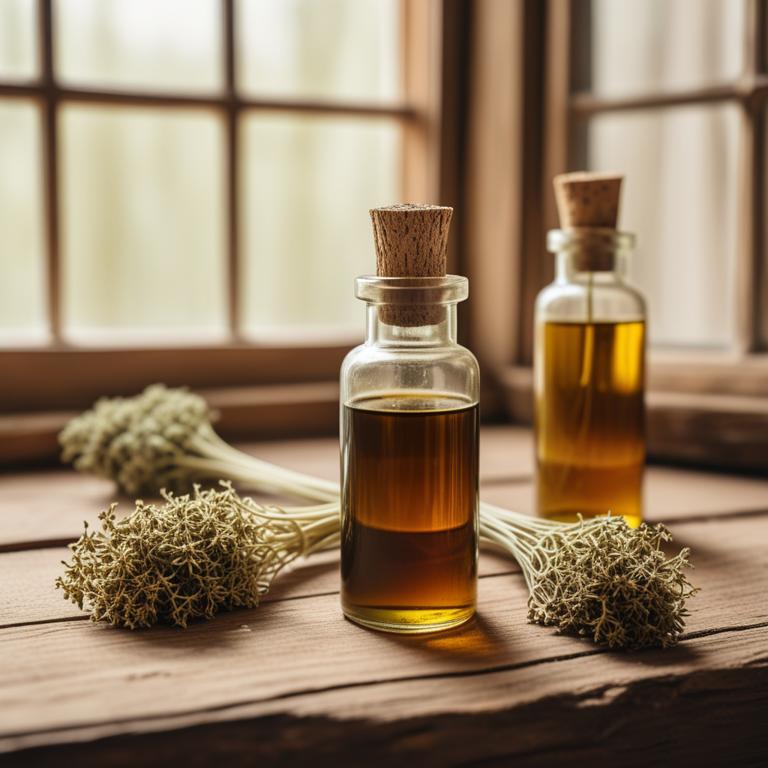
Foeniculum vulgare tinctures contains compounds like limonene and anethole, which are responsible for its medicinal properties.
These compounds have a calming effect on the digestive system, which can help alleviate vomiting caused by nausea and stomach issues. The anethole in Foeniculum vulgare tinctures has a sedative effect on the smooth muscle of the stomach, reducing spasms and cramps that can lead to vomiting. The tincture also has anti-inflammatory properties, which can help soothe an irritated stomach lining and reduce inflammation that may be causing vomiting.
By reducing stomach spasms and inflammation, Foeniculum vulgare tinctures can help alleviate vomiting and promote a sense of calm in the digestive system.
- Gather 1 cup of fresh Foeniculum vulgare (also known as fennel) roots and leaves. Clean them thoroughly.
- Combine the cleaned Foeniculum vulgare with 2 cups of vodka in a clean glass jar. Make sure the plant material is completely covered by the vodka.
- Seal the jar and let it sit in a cool, dark place for 2-3 weeks, shaking the jar every day to help the tincture extract.
- After 2-3 weeks, strain the tincture through a cheesecloth or a coffee filter into another clean glass jar. Discard the solids.
- Store the Foeniculum vulgare tincture in a clean glass bottle with a tight-fitting lid. Use 20-30 drops as needed to help with vomiting.
6. Curcuma longa

Curcuma longa tinctures contains a compound called curcumin, which is a powerful anti-inflammatory and antioxidant.
Curcumin has been shown to have a stabilizing effect on the stomach, reducing inflammation and calming digestive issues that can lead to vomiting. The bioactive constituents of Curcuma longa tinctures, including curcumin, demethoxycurcumin, and bisdemethoxycurcumin, work together to reduce inflammation and alleviate symptoms associated with vomiting. Curcumin's antioxidant properties help to neutralize free radicals that can damage the stomach lining and contribute to vomiting.
By reducing inflammation and stabilizing the stomach, Curcuma longa tinctures may provide relief for individuals experiencing vomiting caused by digestive issues.
- Gather ingredients: 1 cup of Curcuma longa roots, 2 cups of vodka (at least 80-proof), and a clean glass jar with a lid.
- Dry the Curcuma longa roots in a warm place or using a food dehydrator for 2-3 days.
- Combine 1 cup of dried Curcuma longa roots with 2 cups of vodka in the glass jar. Make sure the roots are completely covered by the vodka.
- Seal the jar and let it sit in a cool, dark place for 2-3 weeks, shaking the jar every day. This will allow the roots to infuse into the vodka.
- Strain the liquid through a cheesecloth or a coffee filter into another clean glass bottle. Discard the solids and store the tincture in a cool, dark place.
7. Matricaria chamomilla
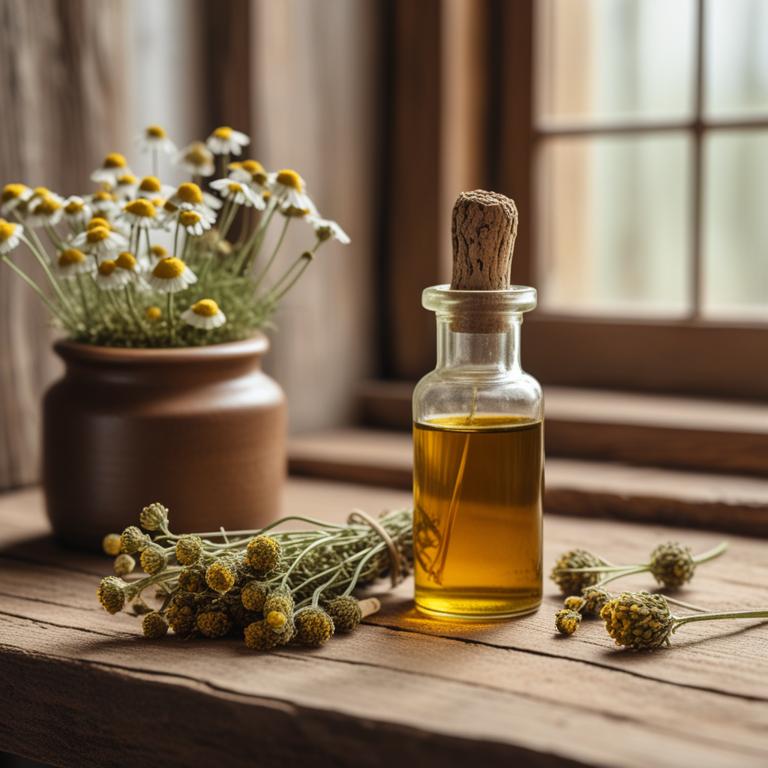
Matricaria chamomilla tinctures contains apigenin and luteolin, two flavonoids that have a calming effect on the digestive system.
These compounds help to soothe the stomach and reduce inflammation, which can cause vomiting. Apigenin also has a sedative effect, which can help to calm the stomach and prevent nausea. The anti-inflammatory properties of luteolin can also help to reduce stomach acid and prevent irritation, further reducing the likelihood of vomiting.
By reducing inflammation and calming the stomach, Matricaria chamomilla tinctures can help to alleviate vomiting and provide relief from digestive discomfort.
- Gather 1 cup of fresh Matricaria chamomilla flowers, a glass jar, and 2 cups of vodka (at least 35% ABV).
- Combine the flowers and vodka in the glass jar, making sure the flowers are completely covered.
- Seal the jar and let it sit in a cool, dark place for 2-3 weeks, shaking the jar every day.
- After 2-3 weeks, strain the liquid through a cheesecloth or a coffee filter into another glass jar, discarding the solids.
- Label the jar with the date, contents, and dosage instructions (usually 20-30 drops in water, 3-4 times a day for vomiting).
8. Mentha x piperita

Mentha x piperita tinctures contains the bioactive constituents menthol and menthone.
These compounds have anti-inflammatory and antispasmodic properties, which help to ease digestive issues and reduce nausea. Menthol, in particular, has a soothing effect on the stomach and intestines, reducing inflammation and calming spasms that can cause vomiting. Menthone also has a calming effect on the nervous system, which can help to reduce stress and anxiety that can lead to vomiting.
By reducing inflammation and calming the stomach and nervous system, Mentha x piperita tinctures may help to alleviate vomiting and promote a sense of calm.
- Gather 1 cup of fresh Mentha x piperita leaves and 2 cups of 80-proof vodka.
- Chop the leaves finely with a knife or a food processor.
- Combine the chopped leaves and vodka in a clean glass jar.
- Steep the mixture for 2 weeks in a cool, dark place, shaking the jar every day.
- Strain the liquid through a cheesecloth or a coffee filter into another clean glass bottle. Discard the solids.
FAQ
Can drinking herbal tea prevent vomiting from forming?
Drinking herbal tea might help with nausea and vomiting.
Peppermint and ginger teas, in particular, are known to calm the stomach and settle queasiness.
They work by soothing the digestive system and reducing inflammation, which can help ease vomiting.
Is it safe to consume herbal teas for vomiting every day?
Consuming herbal teas for vomiting every day can be safe if you choose teas that are gentle on your stomach.
Look for teas with soothing herbs like peppermint, ginger, and licorice root. These can help calm your stomach and reduce nausea.
However, some teas can interact with medications or have side effects, so be sure to read the labels carefully.
How long does it take for herbal teas to show results in vomiting?
Herbal teas can help with vomiting, but it's hard to say exactly how long it takes to see results.
Some people might feel better right away, while others might need a few hours or even a full day.
It really depends on the person and the tea they're drinking.
Related Articles
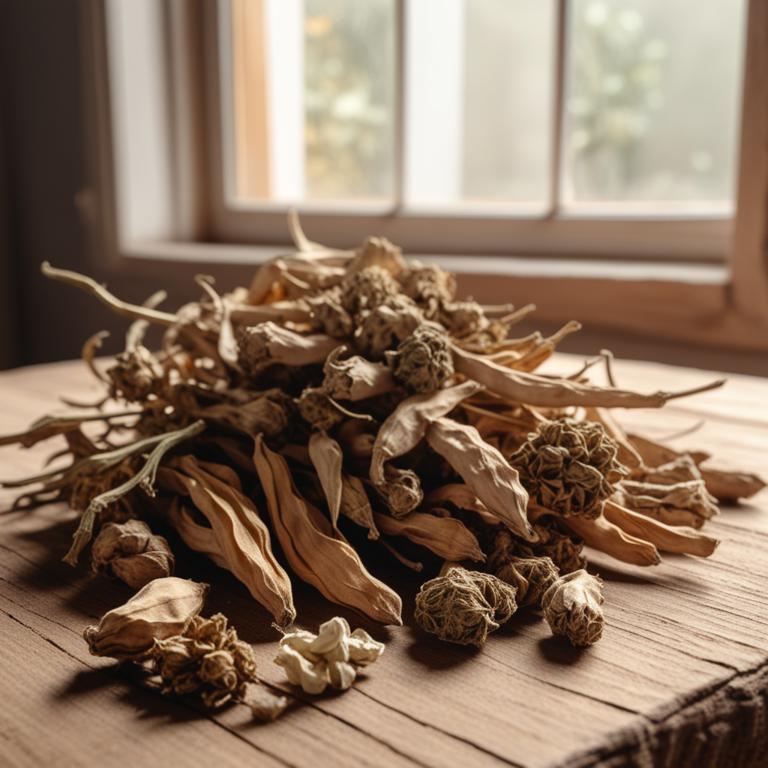
Gerd: Understanding the Causes and Benefits of Herbal Remedies
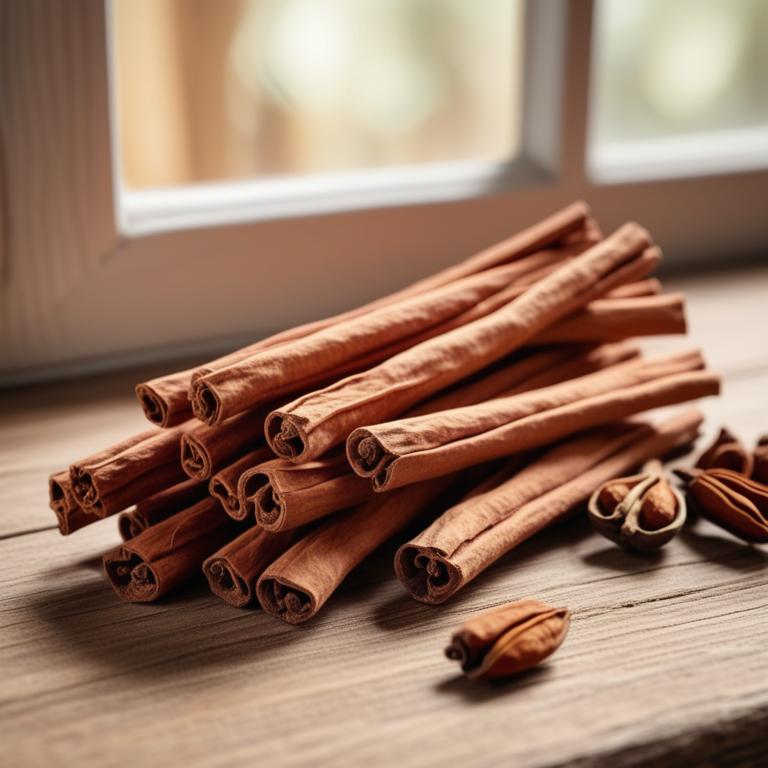
Morning Sickness: A Guide to Causes and Herbal Preparations
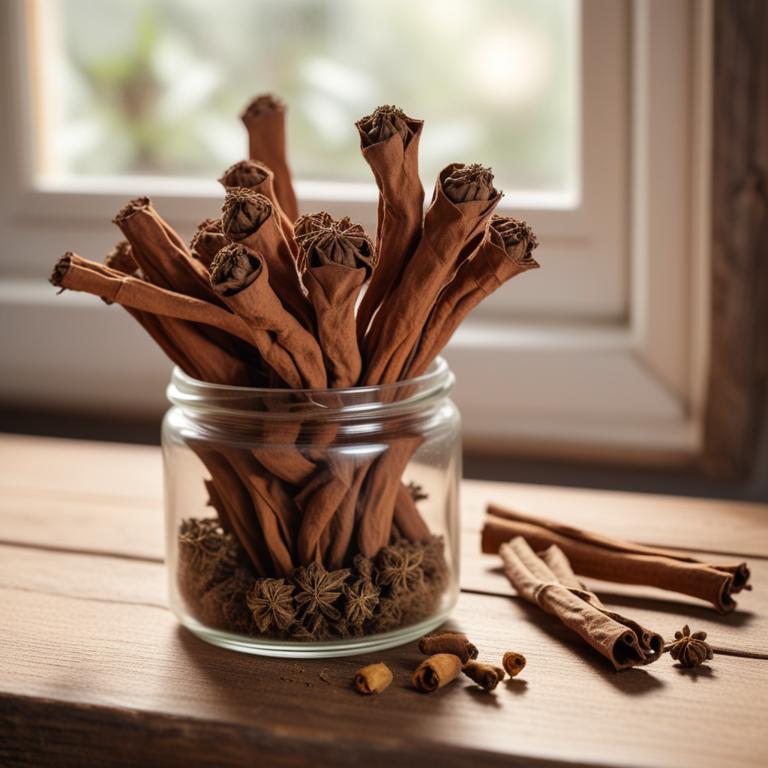
Inflammatory Bowel Disease: Exploring Causes, Medicinal Herbs, and Herbal Supplements
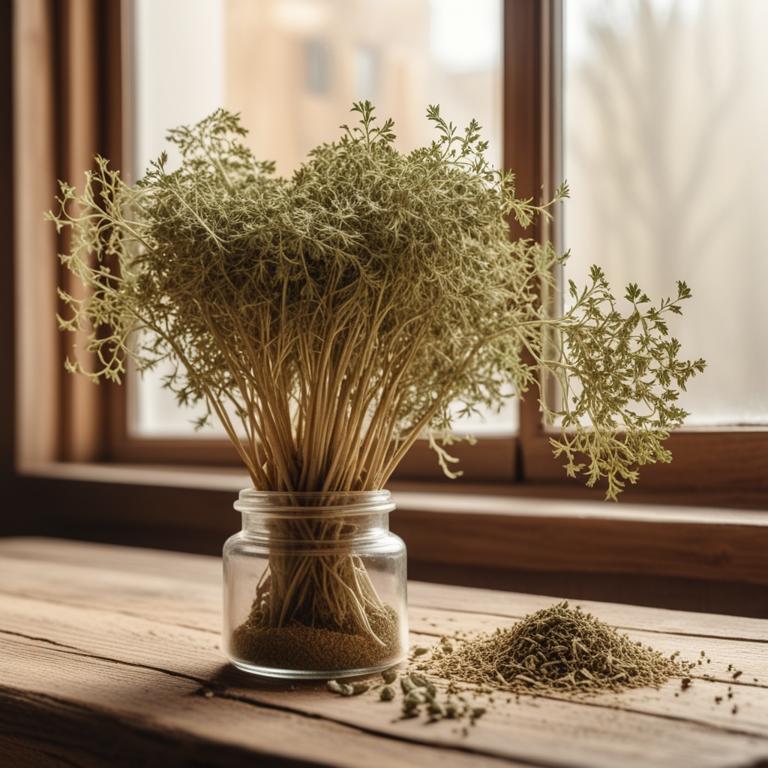
Causes and Herbal Solutions for Flatulence Relief
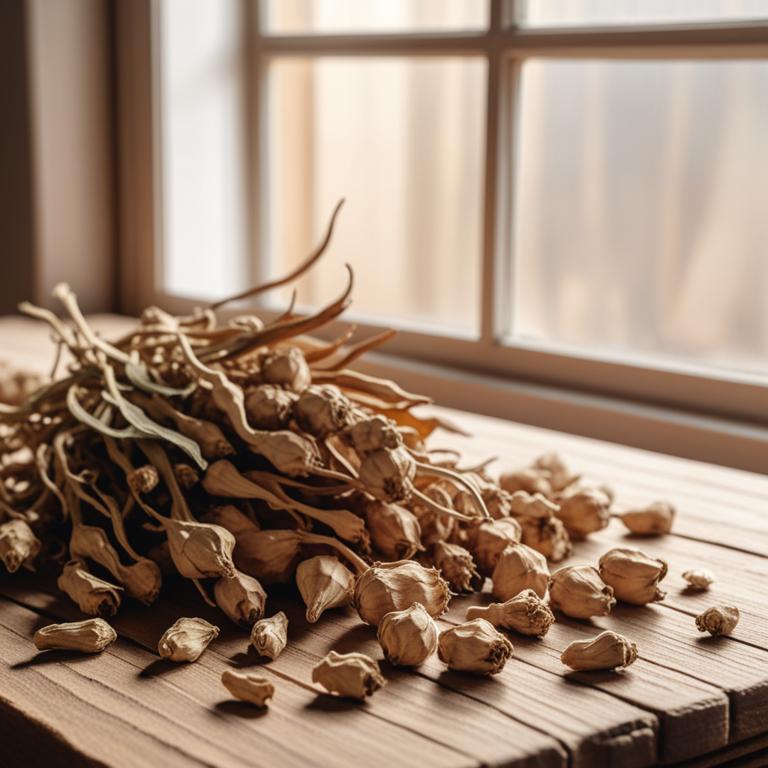
Peptic Ulcers: Causes, Medicinal Herbs, and Herbal Preparations for Pain Relief




